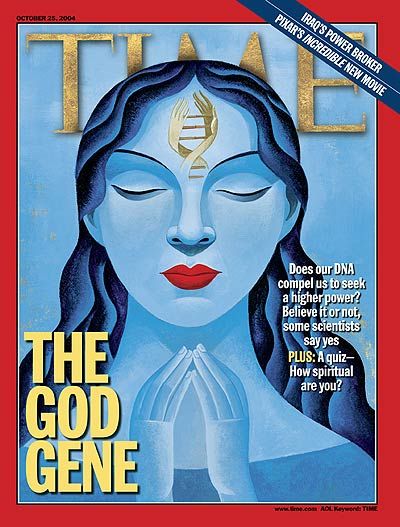RenegadeOfPhunk wrote:I agree that no 'spiritual world' or 'literal God(s)' exist.
I also agree that this is about seeing words in different ways. (What a whole load of the other thread was about as well...)
What is meant by 'spiritual experiences' are perfectly inspectable by science. It is not meant to enforce the idea that people literally 'feel' the supernatural. It is where the person feels like they are experiencing something 'beyond reality' - where the person feels that way. These kinds of experiences absolutely happen - there is no reasonable doubt about that. Therefore, they are 'inspectable' by science. And labeling them as 'spiritual experiences' is perfectly sensible - it is a good description of how those kinds of feelings and experiences come across to the people experiencing them..
If that 'kind of use' of the word 'spiritual' is good enough for Harris and Dawkins, then I would have thought it should be more than good enough for JAK.
But JAK can spend the next 10 pages quibbling over the word if he so chooses. It depends exactly how many mountains he wants to make out of so many molehills.Would it be appropriate to study it as an "alien experience" as opposed to simply an experience which occurred in the mind of the individual?
I would call such a study a study into 'Alien abduction experiences'.
...rather than 'Alien abductions'. The distinction is adding the word 'experiences'.
The claim isn't being made that the 'spiritual world' is being investigated. Only 'spiritual experiences' - which is not the same thing at all.
Ren,
Your last line in this post is of some interest:
Ren stated:
The claim isn't being made that the 'spiritual world' is being investigated. Only 'spiritual experiences' - which is not the same thing at all.
JAK:
I’m not sure why my name came up in your post.
As I feel confident you know definitions are very important to science and to scientific investigation.
I asked Moniker to distinguish between “spiritual” anything and “emotional” responses or reactions experienced by humans and other animals. No one disputes that people have emotional responses. Psychiatry and psychology both investigate emotions.
That branch of medical science also attempts to see how different individuals exhibit different responses when confronted with similar situations.
A man jumps into a river to save people he knows are in a car (in the river) to save them.
Another man perhaps as physically able to do the same thing calls 911 or watches or makes some other call for help. He doesn’t jump into the river.
Without question, the predicament is filled with emotion and a sense of urgency.
Joy, fear, hate, love, euphoria, anxiety, etc. are all emotions. These and others are explored by medical science.
What may discoveries about these responses tell us regarding the people who have had them or are having them as they are observed?
marg’s points regarding how science may or may not address them is drawing for us some distinction.
Her point also that there appears to be “no clear definition of spiritual” seems accurate. The descriptions and characterizations are filled with interpretation of experience.
When does an emotional response become a clinical hallucination? (Psychiatry)
It would seem we are really confronted with advanced study of how the brain “communicates” with itself and with body parts and with all externals to the person in whom the brain resides.
JAK
